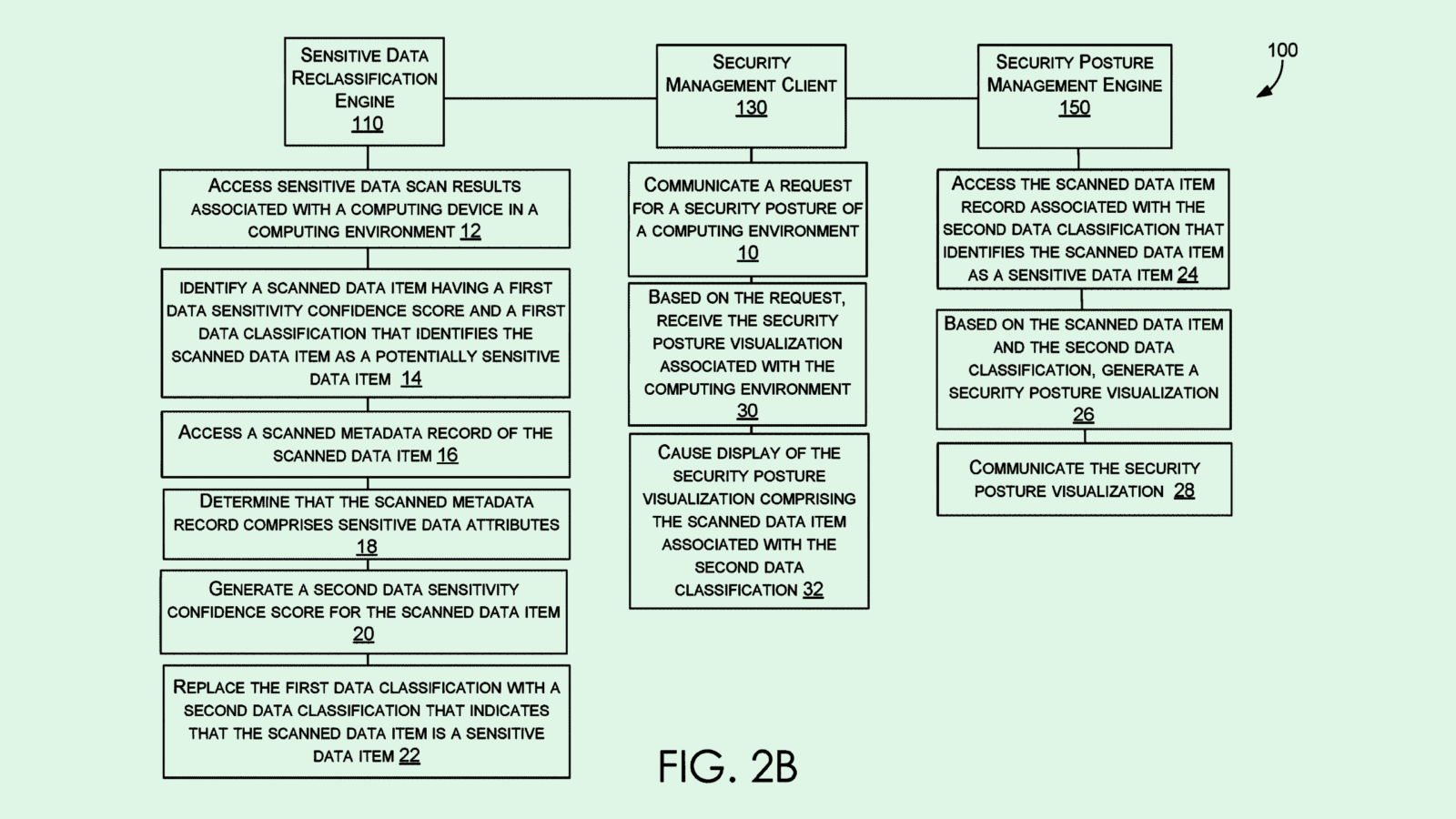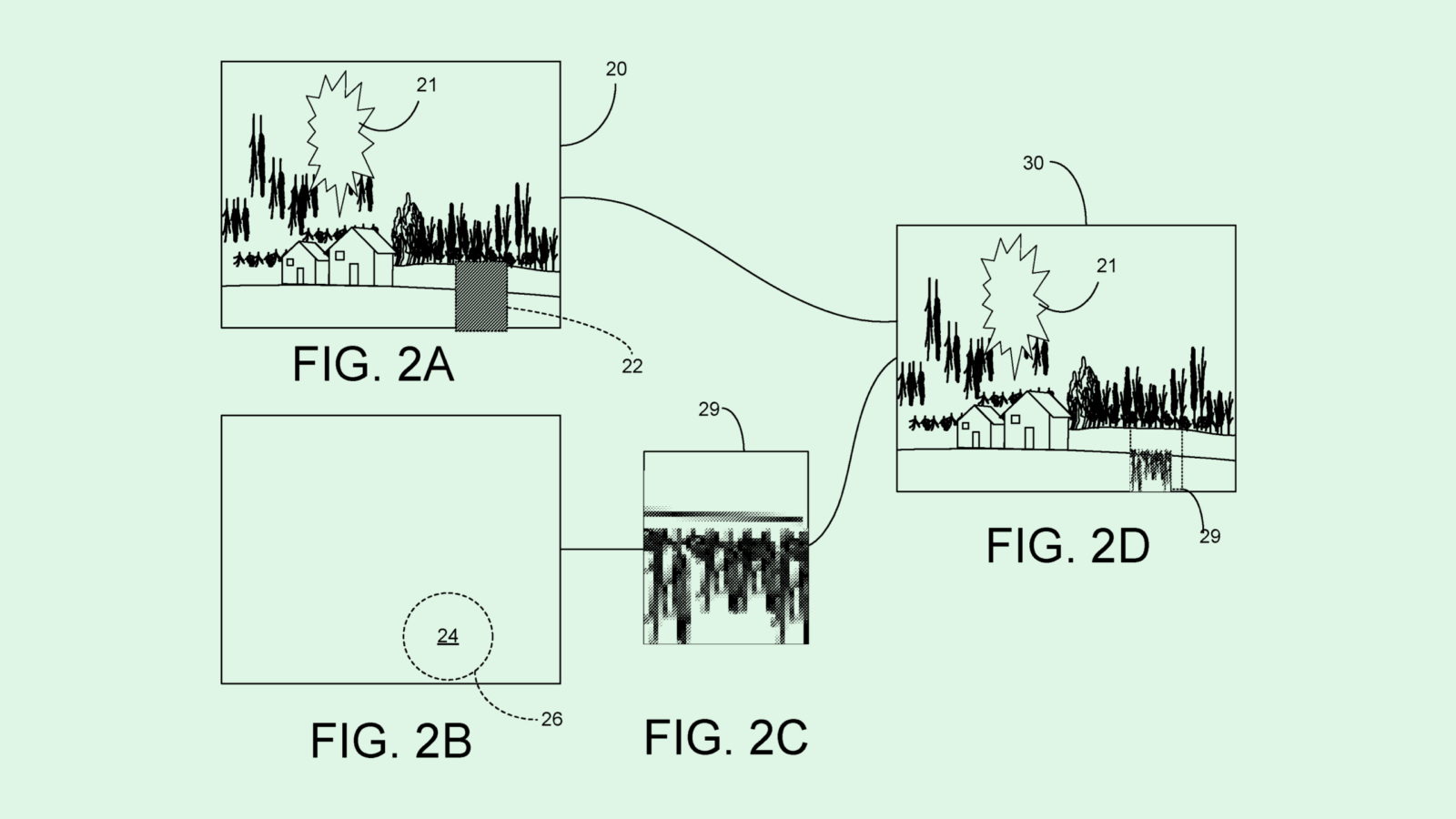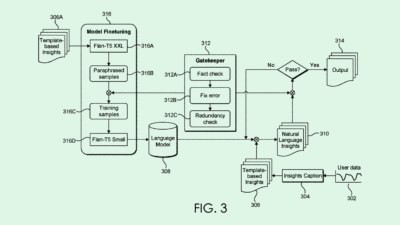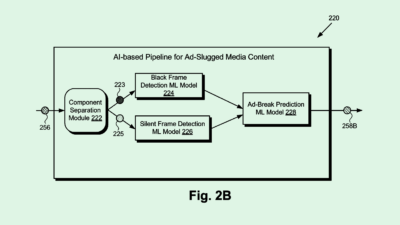Google Patents Explore Convergence of AI and Healthcare
The filings signal the growing use cases for AI in healthcare settings, but also the risks that may accompany using AI in clinical care.
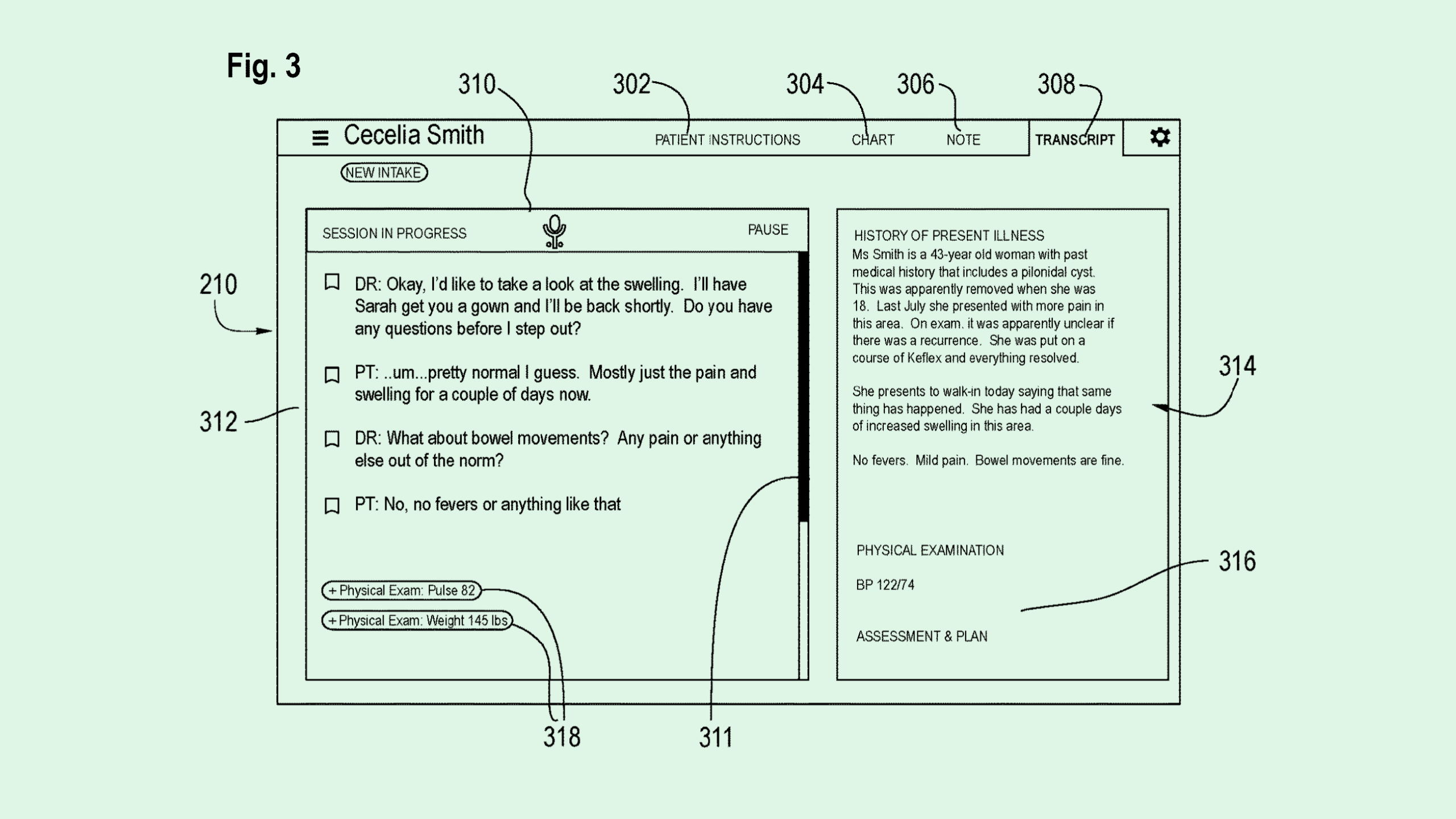
Sign up to uncover the latest in emerging technology.
Google may want to bring its AI expertise to the doctor’s office. The company filed multiple patent applications related to machine learning-based note-taking and research assistance in healthcare settings.
First up, Google is seeking to patent a system for matching unstructured text to “clinical ontologies.” To put it simply, this uses a neural network to break down doctors’ notes and identify relationships between the terms used within them.
When it’s fed medical notes from an appointment, Google’s AI recognizes and extracts specific terms. For example, it may specifically pull out symptoms that the patient reported, along with their medical history, such as previous procedures or conditions. Then, it starts connecting the dots, such as finding relationships between symptoms, past conditions, and potential new diagnoses.
Google’s filing presents the potential for using a neural network as a diagnostic assistant, as AI is particularly talented at pattern recognition and data analysis.
The tech firm also may be looking at ways to spare doctors the grunt work. The company sought to patent an interface for “patient-provider conversation and auto-generation” of notes or summaries. As the title of this patent implies, this tech could provide rapid summary generation of patient office visits, either in real-time or post-appointment.
Using machine learning, this tool takes in an audio recording of a medical appointment, identifying speakers, transcribing their words, and summarizing the text by extracting specific medical terms or conditions discussed by the patient. This tool also links those extracted terms to specific medical sources. The summary is then displayed side-by-side with the transcript via an easy-to-use workstation interface for the doctor. This system also handles proper billing between patients and insurance companies through the notes, freeing up time that would typically be spent on administrative work.
Google noted that physicians spend on average 20% of their time creating notes, so the goal of this interface is “improving the efficiency of generating notes of patient visits that takes less time of physicians, allowing them to see more patients and spend more time on patient care.”
If these systems make it past the stereotypical doctor’s chicken-scratch handwriting, Google’s tech could help the severe understaffing in the US healthcare industry. According to the Association of American Medical Colleges, the US could face a shortage of up to 86,000 physicians by 2036. While these systems won’t be able to entirely replace a doctor, they could ease the load, freeing up more time to spend with patients.
Plus, AI works best when it has more data to work with. In healthcare settings, this tech would best be put to use on diagnosis and treatment of common diseases and conditions “where data is consistent and vast and patient outcomes are well understood,” said Luká Yancopoulous, CEO of healthcare supply chain software company Grapevine.
“That’s the largely curable and treatable diseases that fly under the radar, and people miss the opportunity to get the care they deserve,” Yancopoulous said.
But AI doesn’t come without its limitations. For one, these systems may not be useful when dealing with rare diseases or conditions with little data, said Yancopoulous, adding, “If the information isn’t available, how great can the predictive algorithm really be?”
The other issue is that healthcare professionals would need to have an understanding of the AI systems they’re using, said Amin Katouzian, co-founder and CEO of patient navigation app Rally Behind You. To perform well, these algorithms need close monitoring and a human co-pilot to prevent hallucinations that may lead to misdiagnosis.
“You not only need to be technologically competent, you also need to be healthcare-competent,” said Katouzian. “If the algorithm makes a mistake … there has to be a way that enables providers to modify them.”
Google has previously partnered with Epic, an electronic health records company, to integrate its systems into Google Cloud. Bringing its AI prowess into the mix could extend its current capabilities in a lucrative market.
“The use of AI in healthcare is inevitable,” said Katouzian. “And (Google) has everything that (healthcare) needs when it comes to AI infrastructure.”




